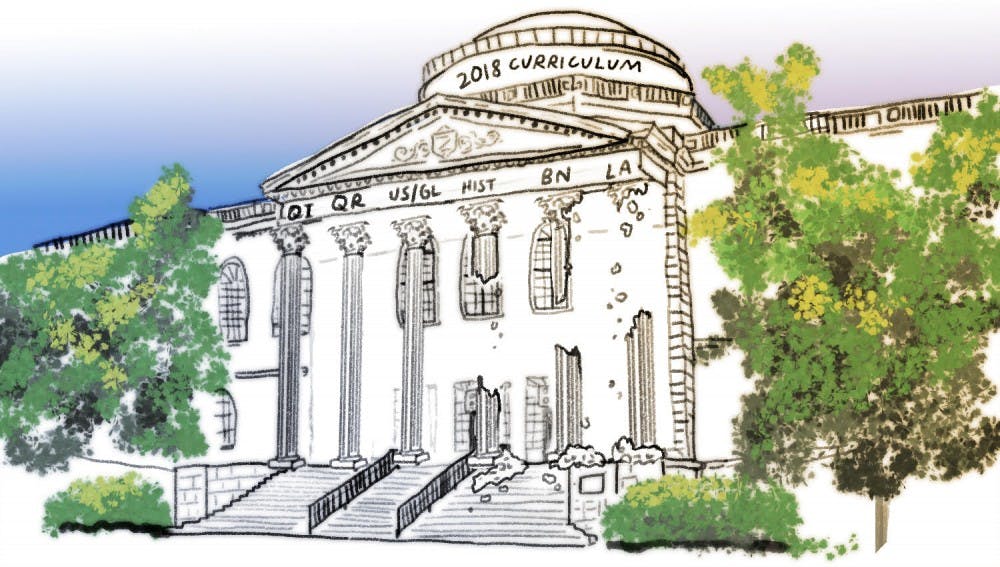In the past couple of weeks, the Daily Tar Heel has published explanatory articles and critical letters to the editor regarding the proposed general education curriculum changes. This board agreed that it was time to put our thoughts to paper on this update.
We believe there are many positive components. First, this proposal eliminates the ability of students to fulfill general education requirements with AP courses. While this does make it more difficult to double major or graduate early, it eliminates a classist, racist structure that enabled students with access to AP courses and exams in high school are able to complete their degrees at UNC faster than students without access to such courses.
Second, we applaud the introduction of MFIT, a course dedicated to mental wellbeing, in addition to the LFIT course. This is an improvement to the LFIT curriculum because, presumably, a person with credentials in mental health will teach the course, further equipping students with the resources to deal with their own mental health and the mental health of their friends. Lastly, it is probably good that varsity athletes are exempt from LFIT. Accidents happen — and it makes sense that LFIT should not mess up the carefully crafted training of varsity athletes or unnecessarily injure them, especially when their college careers often depend on athletic participation.
Now, to the negatives, which significantly outnumber the positives.
Most generally, this curriculum update will reduce the number of general education courses taken by each student. While this may be a welcomed addition for students, this board sees that as an affront to the University’s mission to produce well-rounded young people who will go out into the world and make it better.
Instead, this update restricts the material that students are exposed to over the course of their college experiences by combining general education categories. The categories that will combined are Humanities with the Fine Arts, Math with Social Science with Natural Science and U.S. Diversity with Global Perspectives. While these groupings were decided on common themes between the disciplines, this board sees the collapse of the discrete categories as problematic.
Recent trends in academia treat the humanities and arts as if they are dying. And, if UNC removes general education requirements that would increase the number of students taking humanities and fine arts courses, UNC contributes to their death. Surely, there will be humanities and fine arts majors who sustain the departments, at least in their core, but the number of students who take those courses who are non-majors will ultimately decrease. We believe general education courses critically function as a way for students to explore and discover interests in the humanities or the fine arts.
Second, the collapse of Math and Social and Natural Science exhibits a different problem. The skills needed to complete a calculus course, a political science course and a chemistry course are fundamentally different. Yes, all may employ some sort of quantitative reasoning, but the ways in which the discrete disciplines use quantitative informations and methods are radically different. We find this collapse to be a problem for students because we believe that the University should ensure that graduates of this institution have some command of mathematical, scientific and social knowledge.
Third, the elimination of discrete requirements for U.S. Diversity and Global Perspectives is even more troubling. The collapse of these two categories seems to indicate that the University sponsors the idea that diversity within the U.S. is foreign, which this board finds to be wrong. In addition, this will decrease the number of diversity classes, thereby cutting down on professors hired for their work in diversity, domestic or otherwise.




